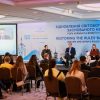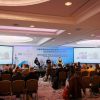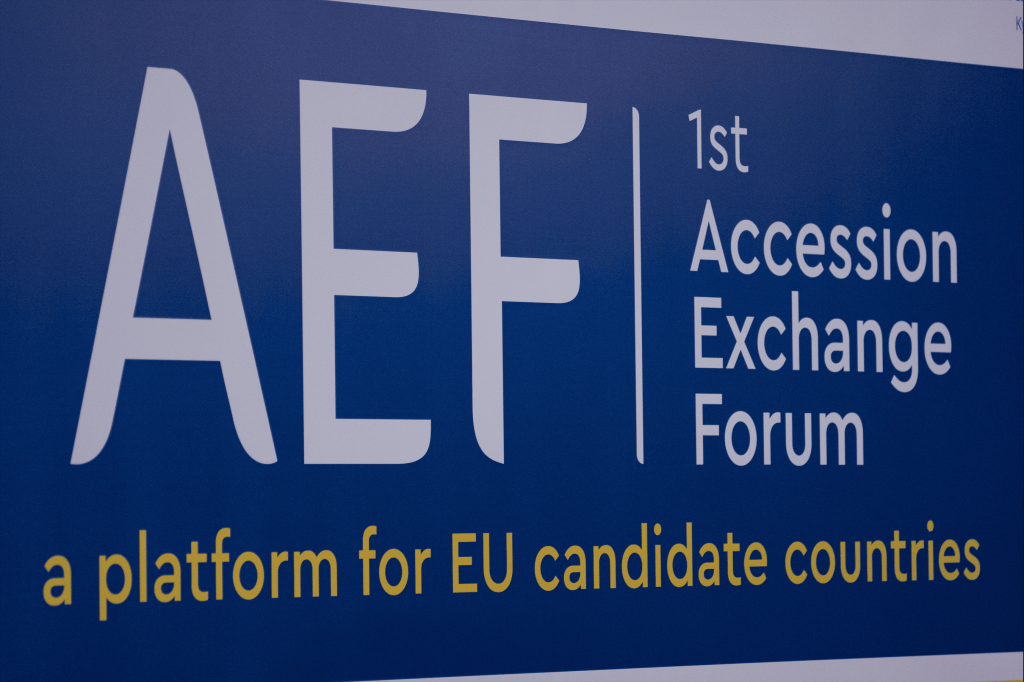
28-29 листопада Центр «Нова Європа» провів 1st Accession Exchange Forum за участю високих урядовців та провідних експертів у Києві.
Дводенний офлайн-захід був присвячений обміну думками щодо процесу вступу, обговоренню передових практик, нових ідей та отриманих уроків, а також дослідженню можливостей у відносинах між Європейським Союзом, країнами Східної Європи та Західних Балкан.
Зокрема, дискусійні панелі були присвячені таким питанням:
- Статус кандидата в ЄС для України та Молдови, а також потенційного кандидата для Грузії: шлях до членства
- Західні Балкани та Східна Європа в однаковому ракурсі: реформи, перспективи та синергія для прискорення процесу вступу
- Роль парламентів у процесі вступу: політичний консенсус щодо реформ вступу як рушія успіху
- Війна Росії проти України: наслідки для процесу вступу до ЄС
- Поетапний вступ і реформа методології розширення: як прискорити членство в ЄС?
Запис Форуму доступний тут: 1-й день та 2-й день.
Пропонуємо вашій увазі ключові меседжі спікерів:
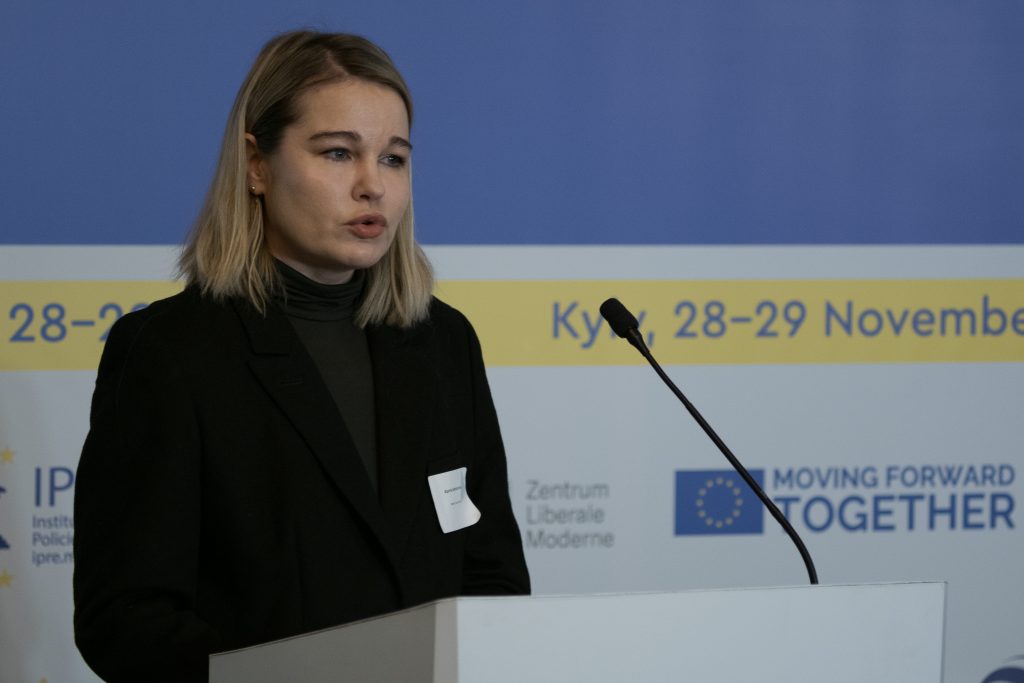
Альона Гетьманчук, Директорка Центру «Нова Європа»:
«Все має бути досить чітко: для виживання України потрібна зброя, для розвитку України – членство в Європейському Союзі. Але перед цим потрібно розпочати реальний процес вступу. Ми не вимагаємо особливого ставлення, ми не шукаємо коротких шляхів. Ми просто хочемо, щоб процес приєднання був реальним, значущим і ґрунтувався на заслугах».
Ольга Стефанішина, Віцепрем’єр-міністр із питань європейської та євроатлантичної інтеграції України:
«Надання Україні статусу кандидата в ЄС означало не початок процесу, а похвалу за реформи, які тривали роками. Статус кандидата – це не початок шляху, це фактично впевненість тому, що ми нарешті є частиною ЄС, і ми продовжимо цей процес без будь-яких затримок».
Матті Маасікас, Голова Представництва Європейського Союзу в Україні:
«Війна сама по собі не завадила жодним процесам євроінтеграції. Це дуже залежить від спроможності України виконати 7 рекомендацій щодо прийняття правил і стандартів для кращої інтеграції в єдиний європейський ринок».
Олександр Сушко, Виконавчий директор Міжнародного фонду «Відродження»:
«Україна більше не має права на втрату шансу. Вона має істотну силу. Говорячи з європейськими партнерами, ми більше не повинні казати: «Візьміть нас до свого потягу». Відтепер ми будемо одним із локомотивів європейського майбутнього».
Ігор Жовква, Заступник керівника Офісу президента України:
«Україна вже об’єднала ЄС навколо свого питання. У березні був скептицизм щодо кандидатури України. Але ми переконали скептиків: Україна здатна виконати наше домашнє завдання! І ми й надаліл будемо такими ж вимогливими, як і до отримання статусу кандидата».
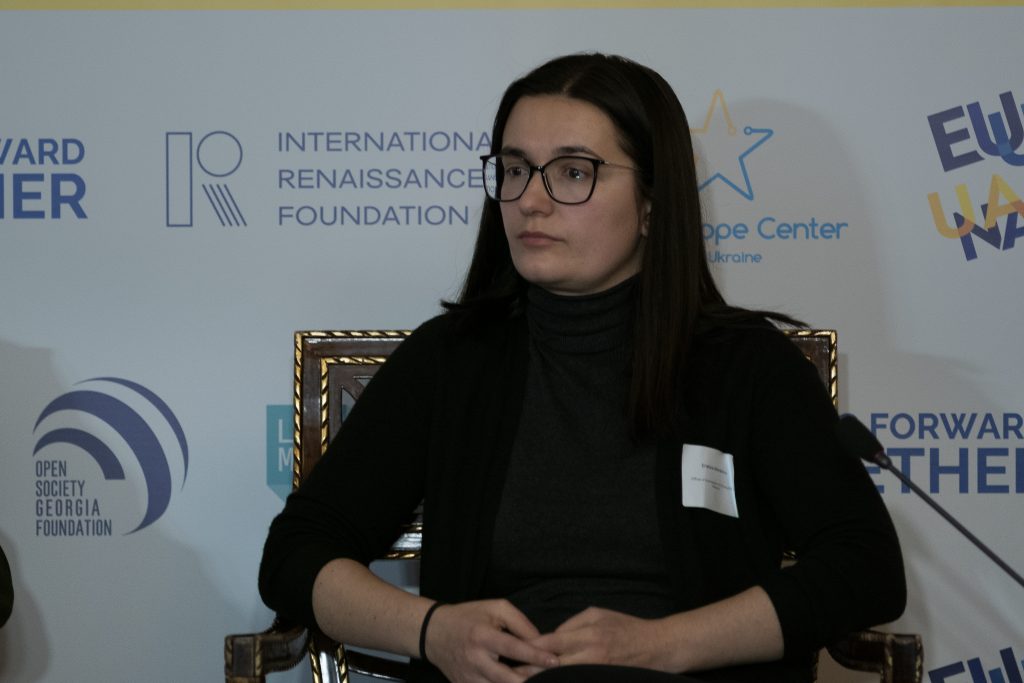
Крістіна Герасімов, Глава Офісу Президента Республіки Молдова:
«У всіх кандидатів на вступ до ЄС є плани дій, над якими ми працюємо індивідуально, але у нас є й спільні виклики. Тут я бачу простір для співпраці з точки зору кращого розуміння того, що ми можемо зробити. Ми всі боремося над впровадженням реформи системи правосуддя. Ми всі хочемо краще очистити нашу судову систему. Ми всі хочемо мати кращих прокурорів. Тут є те, чим ми могли б поділитися, але, звичайно, є індивідуальні проблеми».
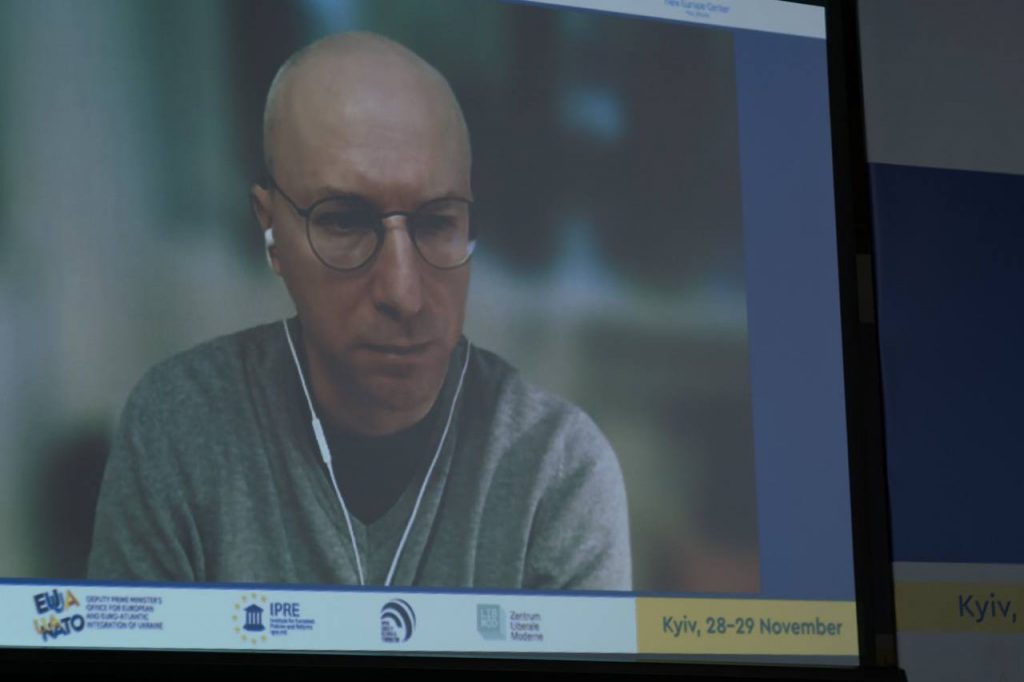
Станіслав Секрієру, Старший аналітик Інституту досліджень безпеки Європейського Союзу (EUISS):
«Війна зняла табу на обговорення розширення на Схід. Це змусило ЄС думати про розширення не лише як про технічний процес, а й як про інструмент, який забезпечує стійку гарантію довгострокової безпеки ЄС».
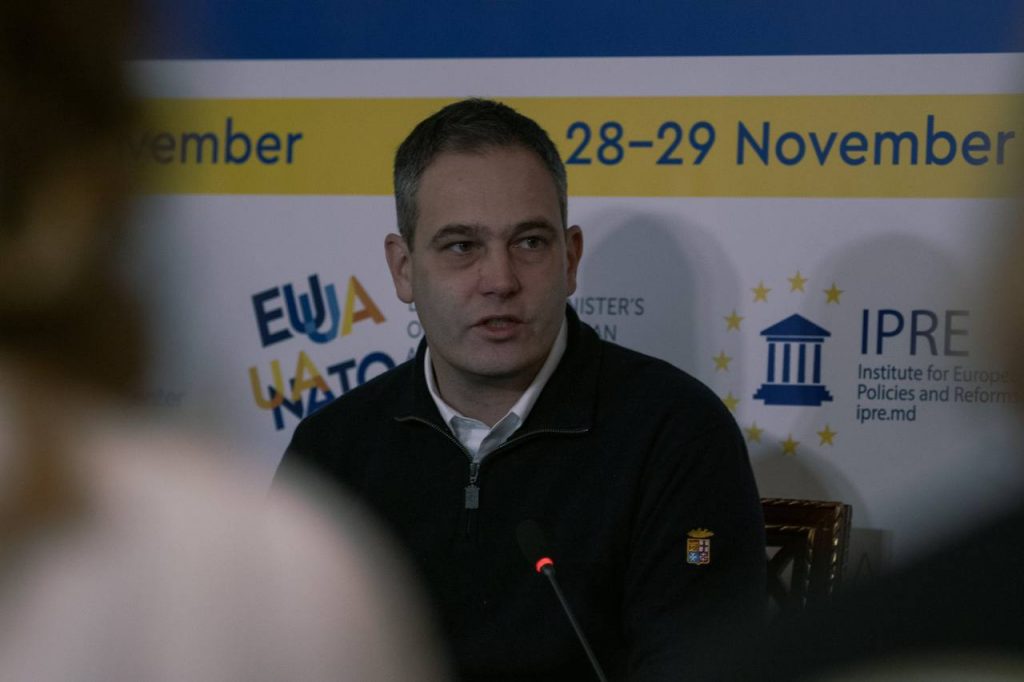
Густав Грессель, Старший науковий співробітник Програми «Ширша Європа» Європейської ради з міжнародних відносин.
«Війна чітко показала, що всі наративи про Україну як про failed state – нісенітниця. Після того, як люди побачили, як українські мери відреагували на руйнування, як обласні адміністрації брали участь у наданні допомоги, ніхто не міг сказати, що це нефункціональний уряд».
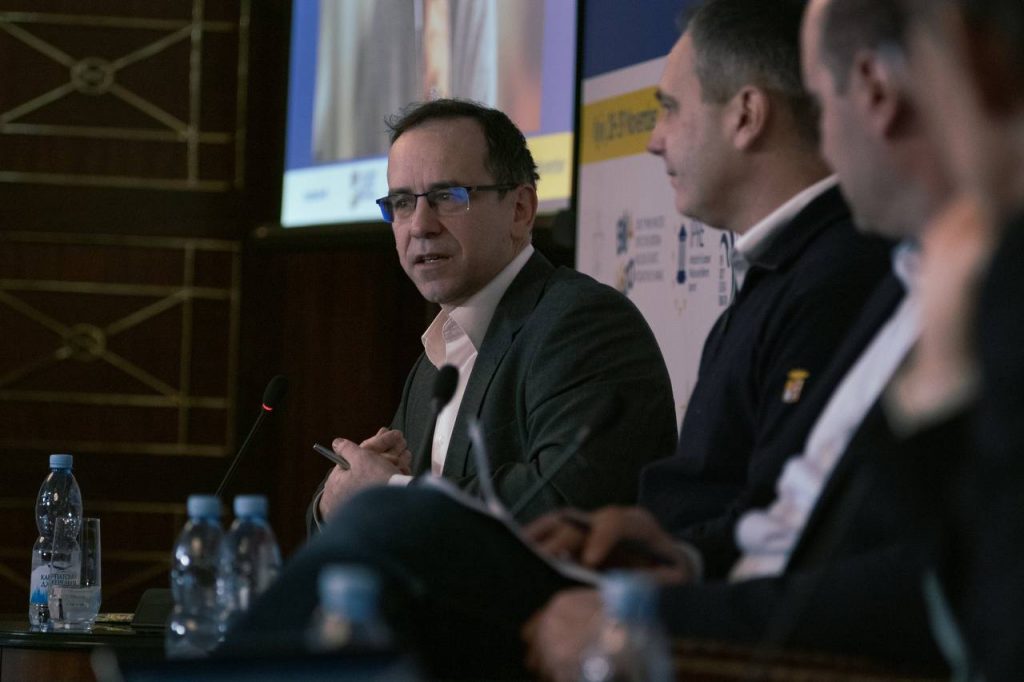
Давід Стулік, Старший аналітик та керівник Східноєвропейської програми дослідницького центру «Європейські цінності».
«У Центральній Європі не може бути жодної нової структури безпеки, яка б не включала Україну. Для нас Україна – це частина нашої майбутньої безпеки. Без України та її армії ми навіть не бачимо майбутнього. Тепер чеське суспільство відкрило для себе Україну».
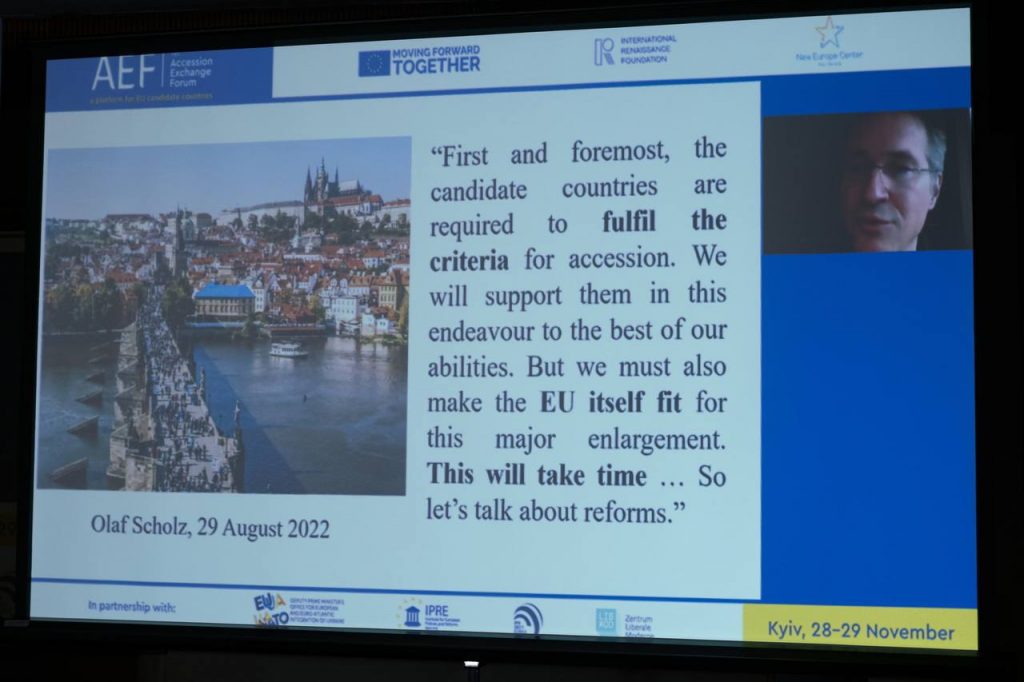
Геральд Кнаус, Голова-засновник аналітичного центру European Stability Initiative:
«ЄС не визнає кризи розширення. Комісія каже, що у нас є процес, він працює. Однак він не працює, тому що немає кінцевої мети, пов’язаної із досягненнями конкретної держави (merit based approach). Країни схожі на хом’ячка у колесі: як би ти швидко не біг, ти нікуди не прибіжиш, тому що деякі держави нам відкрито говорять: ми не хочемо, щоб членів було більше».
Ключові ідеї спікерів з кожної панелі:
Четверть панель “Війна Росії проти України: наслідки для процесу вступу до ЄС”.
П’ята панель “Поетапний вступ і реформа методології розширення: як прискорити членство в ЄС?”.
Фотозвіт з Форуму доступний за посиланням.
Форум організований Центром «Нова Європа» у партнерстві з Офісом Віце-прем’єр-міністра з питань європейської та євроатлантичної інтеграції України, Міжнародним фондом «Відродження», Інститутом європейської політики та реформ та Фондом Сороса в Грузії. Accession Exchange Forum відбувається за підтримки ЄС в рамках проєкту EU4USociety, що фінансується ЄС і реалізується Міжнародним фондом «Відродження».








